"Food waste" Is misleading: why we need to change how we talk about unconsumable food


“Waste” is the common term for any food that’s left unconsumed — anything that doesn’t make it to the store, a dining table, or a community food bank. It’s not necessarily always the wrong term, but often it’s not the right one, either. At Denali, we specialize in transforming what others may consider waste into something valuable. Waste is a mindset. Calling this food “waste” misses the bigger picture. Waste connotes things that are useless, unwanted and burdensome. Yes, some excess food doesn’t get eaten by us, but it by no means has to be wasted. Instead, capturing these materials for recycling or repurposing not only extends to life of food, but it’s an investment in our environmental health.
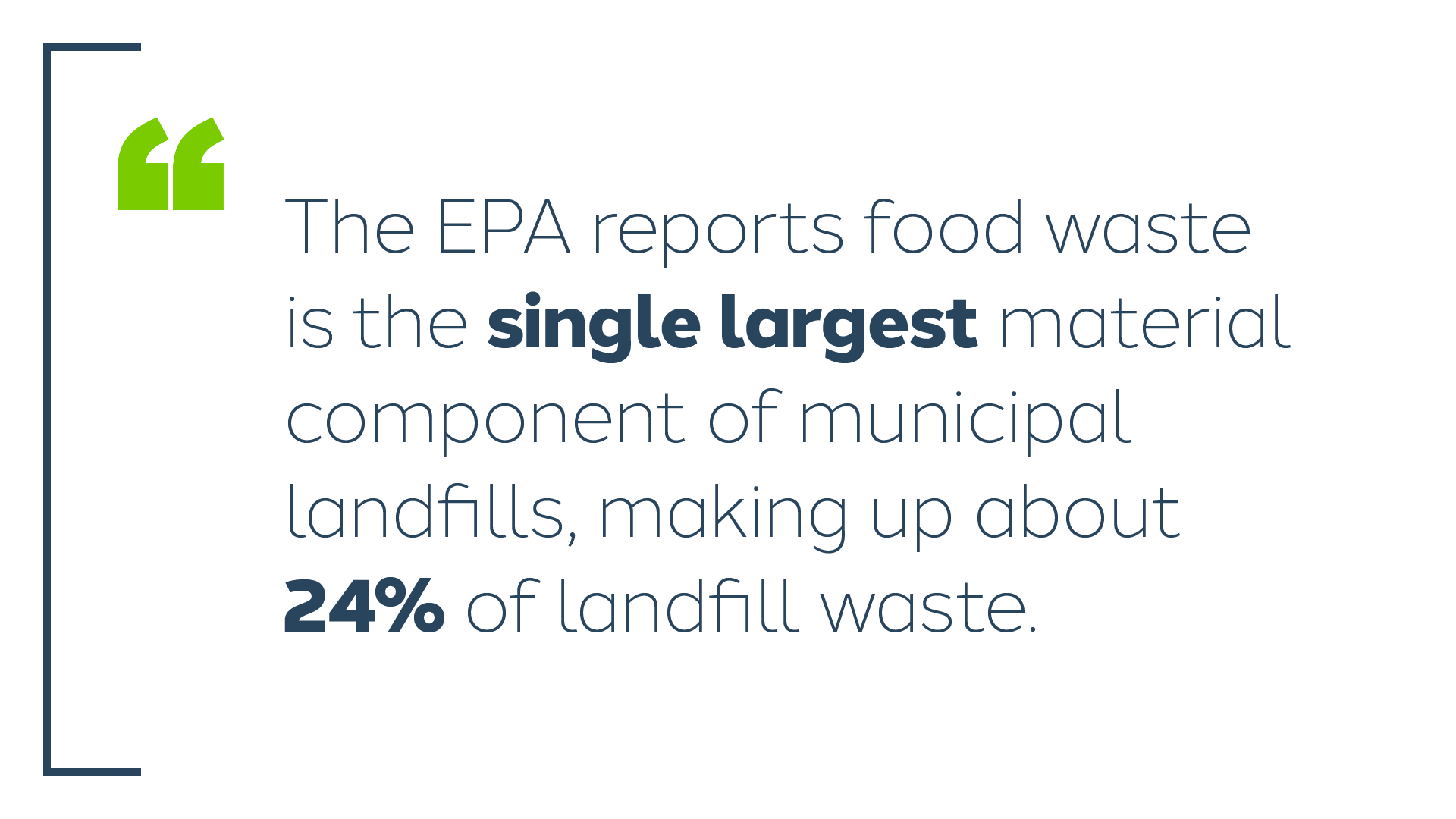
It’s only waste if it’s wasted
The reason we’re hesitant to call unconsumable food “waste” is because it still has value. It’s not something that should be discarded because it still holds so much nutrition and has beneficial reuse in so many ways. However, food can be considered waste if it makes it to the landfill. Once it’s mixed in with the rest of the garbage, it loses its potential to be transformed into something new and can then have a negative impact on our environment. At Denali, our goal is to repurpose unconsumable food to benefit our planet. By collecting and recycling unconsumable food and food byproducts from producers such as grocers, food manufacturers, restaurants, sports and entertainment venues, and hotels, we extend its useful purpose so it doesn’t end up becoming “waste.” In our take-make-waste culture, it is true that a lot of unconsumable food isn’t recognized as beneficial and therefore doesn’t get recycled. A landfill tends to be the end-of-life option for any discarded materials, organic or otherwise. In 2023, 74 million tons of surplus food was generated in the U.S. The United States Environmental Protection Agency (EPA) reports food waste is the single largest material component of municipal landfills, making up about 24% of landfill waste.
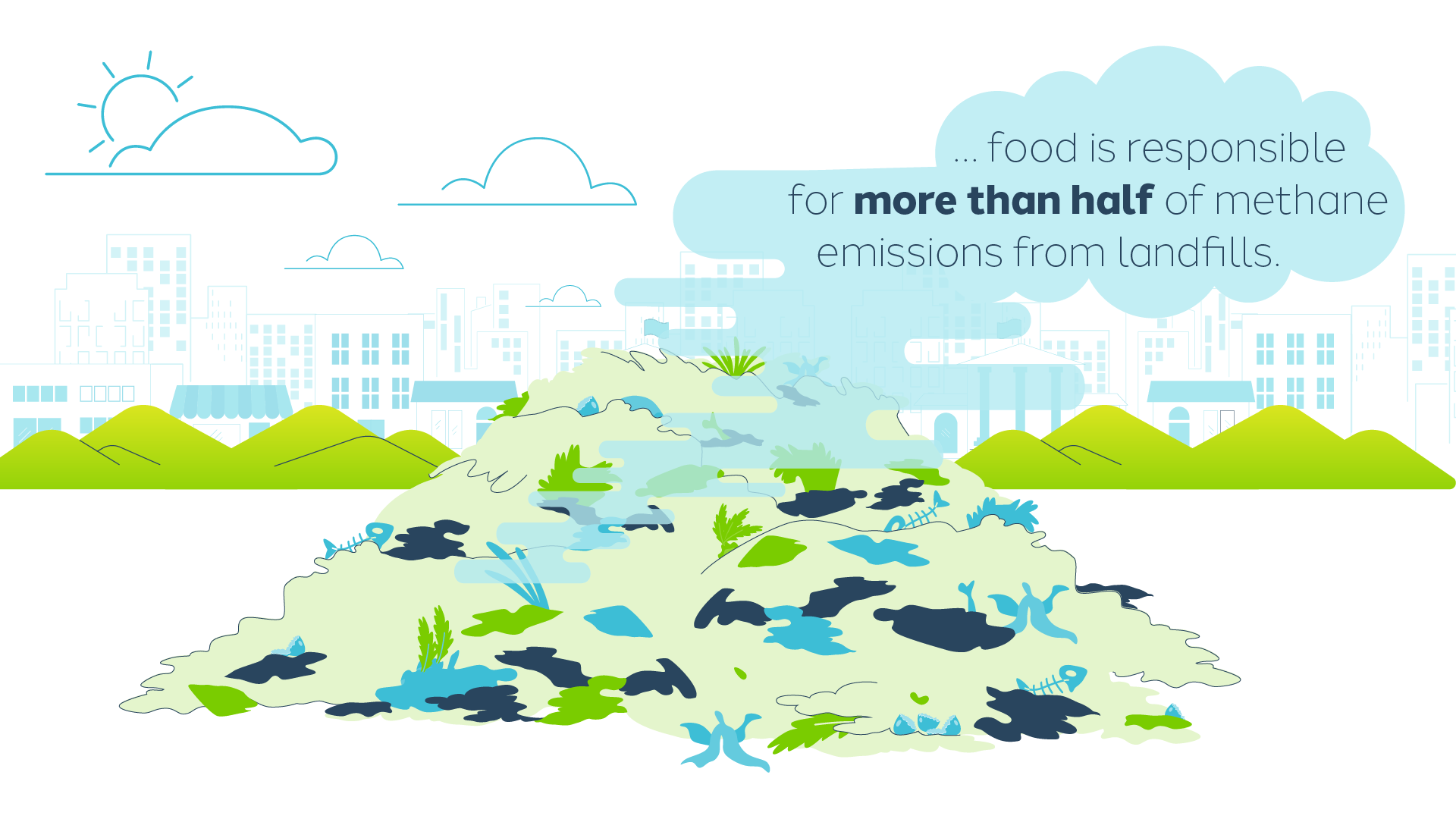
Why organics in landfills is a problem
It’s common to think that throwing organic materials in the trash is fine — they will quickly decompose and are an effective way to manage all materials we no longer use – and are considered “waste.” The issue with that line of thinking is that landfills are not the best way to manage all materials, especially food and organics that provide many beneficial reuses. The breakdown of organics in landfills can also be harmful to the environment because of how they are broken down. The problem with these organic materials ending up in landfills is threefold:
- We lose nutrient-rich benefits of repurposed food.
- Food also takes up landfill space, which is shrinking every day.
- Decomposition in landfills has negative consequences on our environment, producing powerful greenhouse emissions, such as methane, that negatively impact our climate. According to the EPA, food is responsible for more than half of methane emissions from landfills.
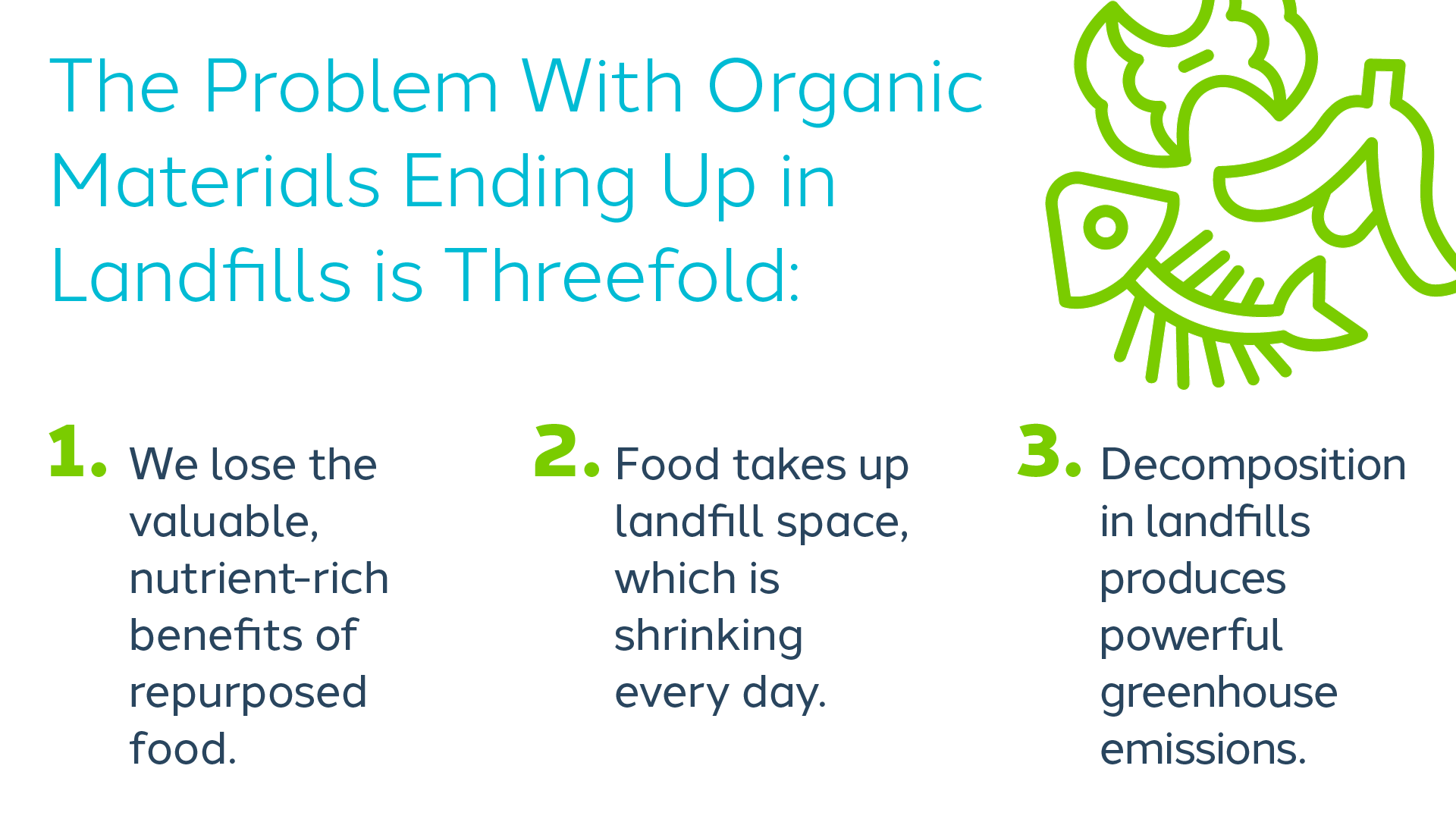
Even though nutrients may be released during decomposition in landfills, they aren’t used in any meaningful way to benefit our environment. If recycled, organic materials can become ingredients for products such as compost, natural fertilizers, and in some cases, animal feed. Learn more about how this is accomplished.Also, landfills take up A LOT of space. The U.S. has nearly two million acres of landfills that impact local communities and ecosystems.
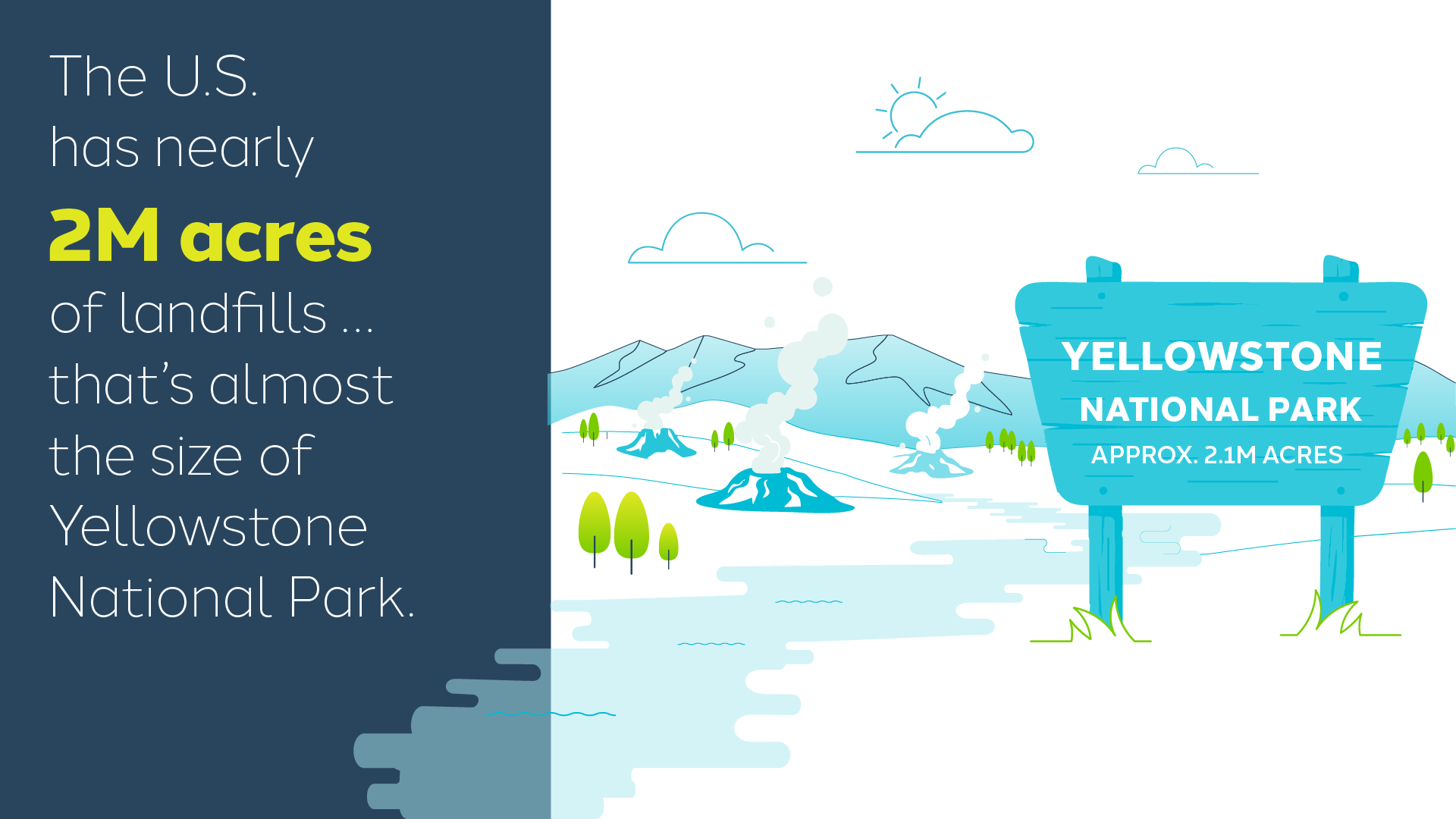
The food waste solution: repurpose and recycle
If we return to our original definition of waste as something useless, unwanted and burdensome, unconsumable food and organic byproducts would no longer fit that description. There’s no shortage for the potential of excess food. Some unsold food can be donated and used to feed our communities. Just because some food is deemed unconsumable, doesn’t mean it’s not fit for any other purpose. This food is one of the best natural sources of nutrition for plants and animals. This means that unsold and unconsumed organic materials are the opposite of waste. They’re untapped assets vital to the circular economy and the environment.In nature, and at Denali, waste does not exist. Unconsumed food and organic materials are often an untapped opportunity. It’s only waste if it’s wasted.
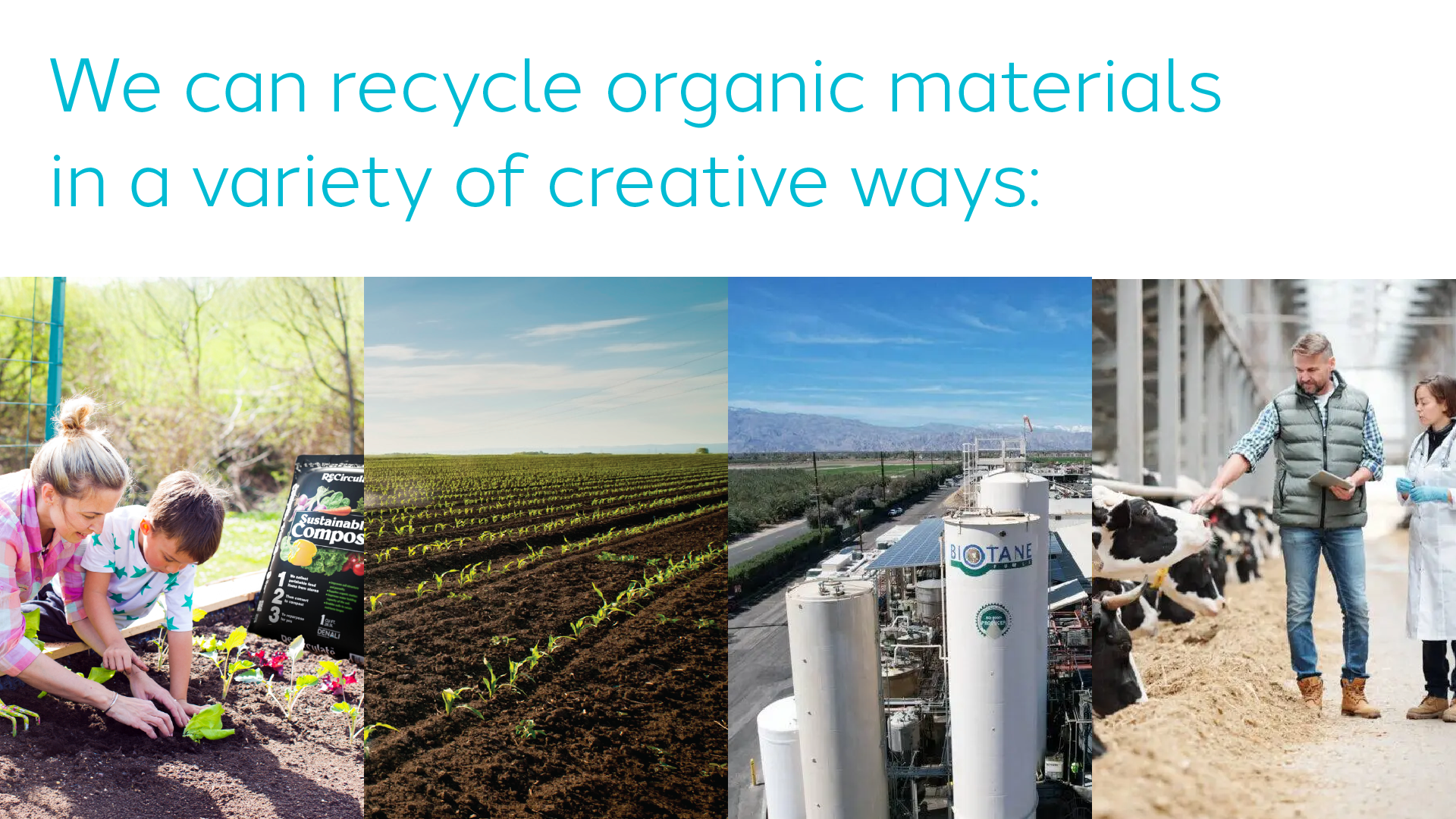
What happens when we stop thinking of unsellable food as “waste”
How do we divert leftovers, expired food and organic byproducts away from landfills and tap into their potential? The answer is collection and choosing to recycle. Through different methods for different types of organic materials, we can use these materials in a variety of creative ways.
Compost and fertilizers
Proper composting allows unconsumed food to decompose by leveraging nutrients for soils. Adding these organic materials as compost or fertilizer to soil provides a nutrient-rich environment for plants to flourish, allows the soil to retain more water, and reduces erosion, providing additional benefits to our environment. Learn more
Animal feed
The term “unfit for human consumption” isn’t as misleading as the term “waste,” but it does have similar implications. A lot of food that doesn’t meet requirements for human consumption is still sanitary and contains essential nutrients animals need.The standards set for food that humans can eat aren’t arbitrary. Some things do pose a potential danger for humans to eat, while others just won’t sell because they’ll look or taste bad. Think of things like leftover bread, and overripe vegetables.With proper processing, we can tap into the nutrients in these foods and create animal feed for livestock and other animals. Learn more
Biofuels
Used cooking oil from commercial kitchens is used to create an alternative, clean-burning fuel. It’s also more efficient than conventional fuel. Learn more
Be a part of the solution
If we can help everyone change the way we talk about unconsumable food - to stop saying it’s “waste” - we can make even more progress in organics recycling to benefit our planet. Sustainability in the industrial, retail, hospitality, and restaurant industries doesn’t have to be an uphill battle. Small changes from everyone, like the vocabulary you use, can snowball into larger change for the better. Contact us today to see how we can help you make food recycling efficient, convenient and effective.
Learn more about Denali's services
Join thousands of businesses turning unsold food and organic waste into valuable new products. Partner with Denali for reliable service—and drive meaningful, sustainable impact.

